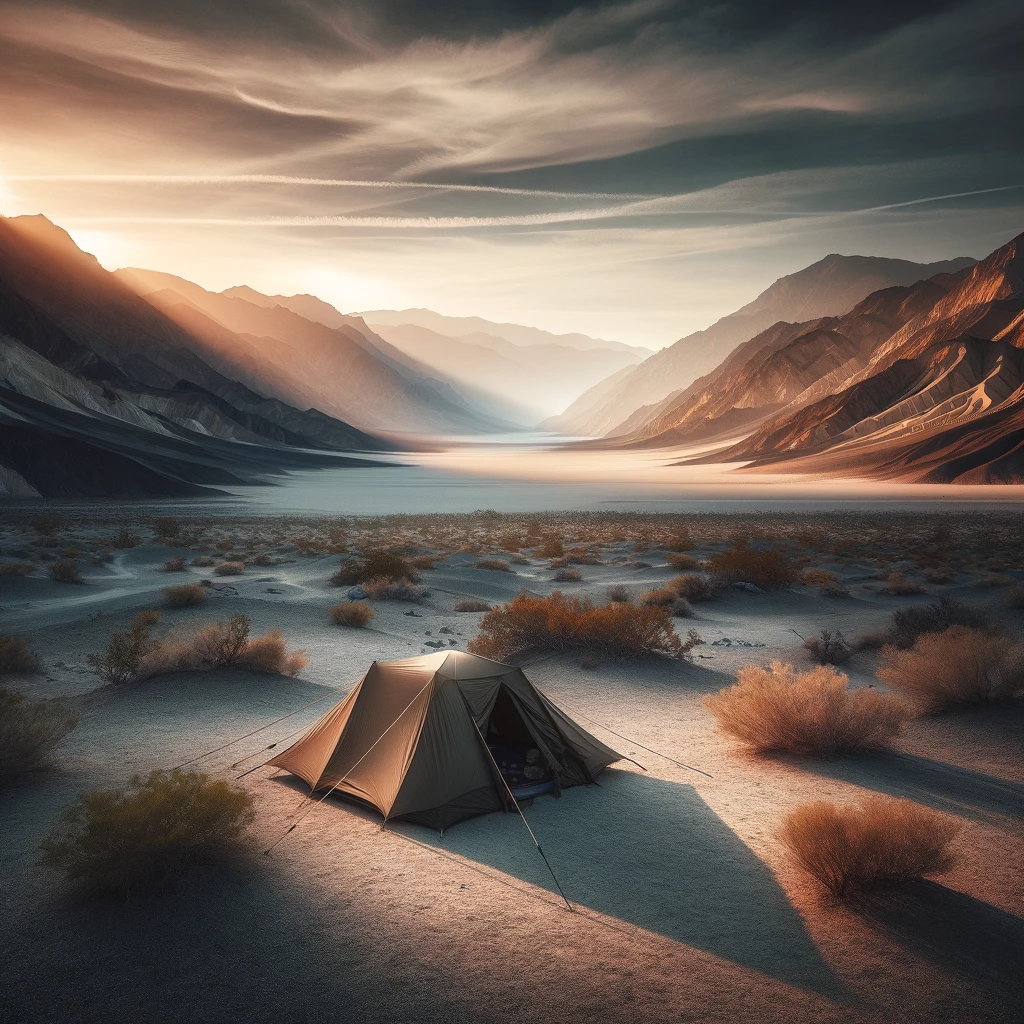Embracing the philosophy of minimalist camping can transform your outdoor experiences, allowing you to focus on the beauty of nature rather than being weighed down by excessive gear. This approach lightens your load and simplifies your camping experience, leading to more spontaneous and enjoyable adventures. By packing light for tent camping trips, you’ll find yourself more mobile, less stressed, and more in tune with your surroundings.
Essential Gear for Minimalist Tent Camping
When it comes to shelter, opt for lightweight options that don’t compromise protection. A compact, high-quality tent or even a versatile tarp can be your home away from home. Pair this with a minimalist sleeping system, such as a lightweight sleeping bag appropriate for the expected temperatures and a compact sleeping pad for insulation and comfort.
For cooking and eating, the name of the game is “multi-purpose”. A single pot that can serve for both cooking and eating, along with a spork (spoon-fork combination), can cover most of your needs. Consider a compact stove for efficient cooking, or if you’re comfortable with it, learn fire-starting techniques to truly embrace the minimalist spirit.
Clothing choices should focus on versatile, quick-drying layers that can be mixed and matched. Stick to the one-bag approach, carefully selecting each piece for its functionality and ability to serve multiple purposes.
The One-Bag Rule
Solo tent camping enthusiasts often swear by the one-bag rule. Choose a backpack or duffel that’s comfortable to carry and appropriately sized for your trip length. Utilize packing organizers to maximize space efficiency and keep your gear easily accessible.
Minimalist Approach to Campsite Comfort
Multi-purpose items are key to maintaining comfort without excess weight. A bandana can serve as a washcloth, pot holder, or even a makeshift filter. Paracord has countless uses, from clothesline to gear repair. Consider lightweight options like inflatable cushions or your sleeping pad as a seat during the day.
Water and Food Strategies
Water purification is crucial for minimalist camping. Opt for lightweight methods like water filters or purification tablets. For food, focus on calorie-dense options that require minimal preparation. Dehydrated meals, nuts, and energy bars are excellent choices that provide necessary nutrition without weighing you down.
Hygiene and First Aid
A compact toiletry kit with biodegradable soap, a toothbrush, and other essentials will keep you clean without unnecessary bulk. Your first aid kit should cover basic needs without going overboard – focus on multi-use items and know how to use them effectively.
Navigation and Safety
While technology has its place, consider the reliability of paper maps and a compass. These never run out of battery and can be crucial in emergencies. However, a small GPS device or emergency communicator can provide an extra layer of safety, especially when choosing campsites for tent camping in remote areas.
Tech for Minimalists
Balancing technology needs with minimalism can be challenging. Consider a small solar charger or power bank for essential devices, but remember that part of the minimalist camping experience is disconnecting from the digital world.
Luxuries vs. Necessities
Critically evaluate each item you plan to bring. Ask yourself if it’s indispensable or if it’s a luxury that might detract from your minimalist experience. Often, embracing the simplicity of nature can be more rewarding than bringing along creature comforts.
Packing Tips and Techniques
Master the art of efficient packing. Rolling clothes instead of folding can save space and reduce wrinkles. Utilize compression sacks for bulky items like sleeping bags to minimize their footprint in your pack.
Adapting Minimalist Camping to Different Environments
Different environments require slight adjustments to your minimalist kit. Desert camping might necessitate extra water capacity and sun protection, while forest camping could require more insect repellent. Mountain environments often demand extra layers for warmth. Always research your destination and adjust accordingly.
Leave No Trace Principles for Minimalist Campers
Minimalist camping aligns perfectly with Leave No Trace principles. Choose gear that minimizes your impact, such as using a camp stove instead of building fires where appropriate. Practice responsible waste management by packing out all trash and learning proper disposal techniques for human waste.
Conclusion
Embracing minimalist tent camping opens up a world of freedom and connection with nature. As you refine your kit and techniques, you’ll discover the joy of traveling light and living simply in the outdoors. Remember, the goal is not to deprive yourself but to focus on what truly enhances your camping experience.

Leave a Reply